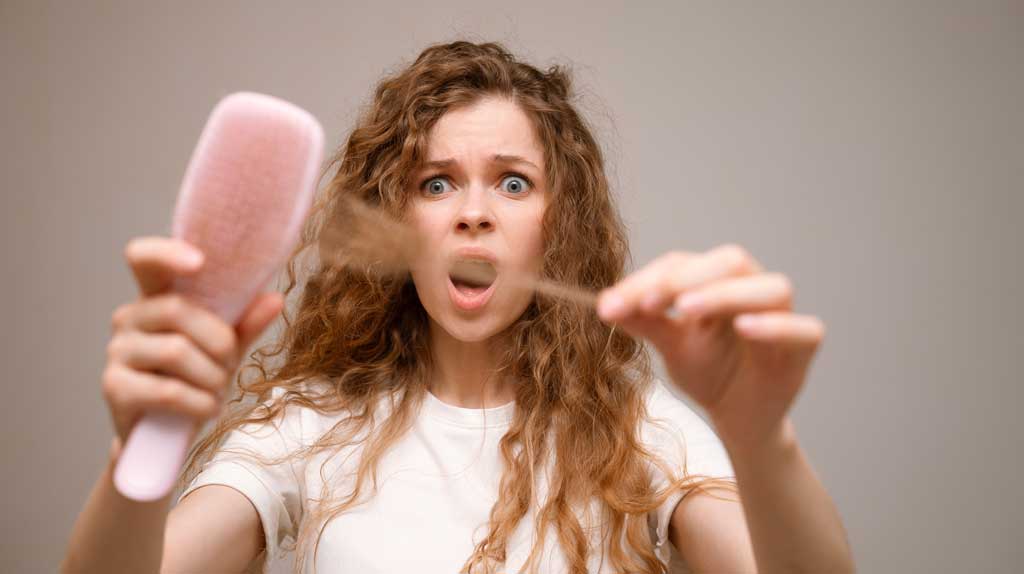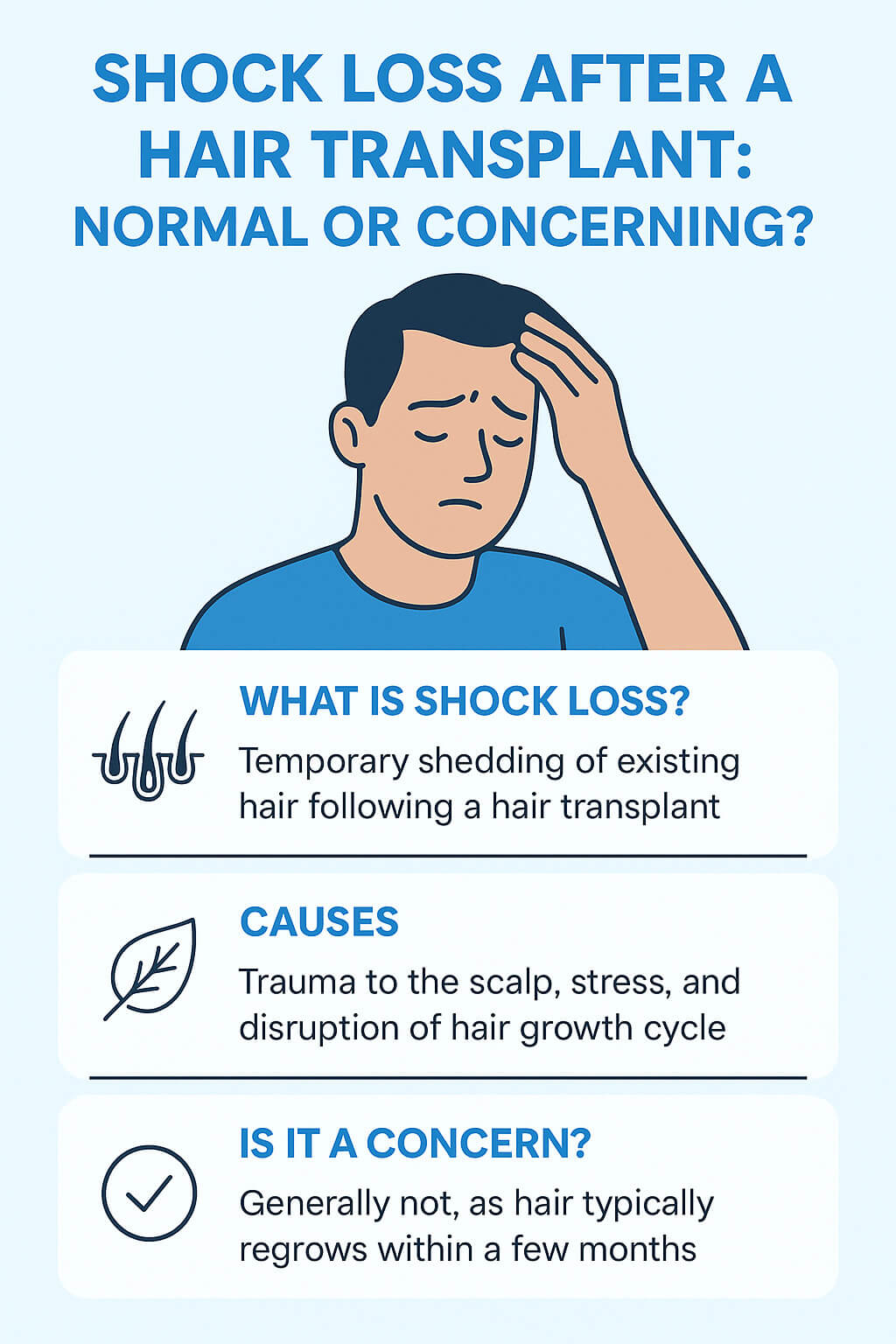
"Shock loss" after a hair transplant : normal or concerning ?
🔎 In brief : Shock loss is a common and temporary reaction after a hair transplant. It usually resolves within a few months as the hair regrows naturally.
Shock loss is a possible side effect of a hair transplant. It refers to the sudden loss of hair immediately after the procedure. But is it serious? Is it irreversible? What causes shock loss and can it be prevented? We answer all your questions.
What is shock loss ?
Shock loss is a reaction that can occur after a hair transplant. It manifests as hair shedding that can vary in severity from one individual to another.
The good news: it’s a completely normal reaction that is neither alarming nor permanent. If it occurs after your procedure, it doesn’t mean your transplant has failed! To feel more reassured, it’s important to understand exactly how shock loss works.
During the surgical procedure required for a hair transplant, the scalp and grafts undergo significant stress. This trauma can disrupt the natural hair growth cycle, causing existing hairs to fall out. This type of reaction is common after surgery, especially when the treated area is the scalp.
The newly implanted grafts are placed in an unfamiliar environment. They need time to adapt, and during this adjustment period, it is not uncommon for them to fall out.

Shock loss: what are the consequences ?
Fortunately, shock loss is only temporary. After the hair falls out—whether it’s existing hair or newly implanted grafts—it will regrow in a few months. Shock loss has no long-term effect on the appearance or density of your hair. It is not a sign of a failed transplant!
Shock loss: a reaction that varies from person to person
Unfortunately, not everyone experiences shock loss the same way. Some people don’t lose any hair after their transplant. Among those who do, the severity of the shock loss varies greatly from one individual to another.
Several factors can influence the likelihood of experiencing post-operative shock loss:
- stress;
- sensitivity of the hair follicles;
- density of the implanted grafts;
- implantation techniques used.
It’s normal to worry about shock loss after a hair transplant. To better manage the post-operative phase, it’s essential to be followed by a qualified doctor who can explain what’s happening and reassure you. Keep in mind that shock loss is only temporary and does not mean your transplant has failed.
How to reduce the risk of shock loss ?
If you are prone to shock loss, you may not be able to completely prevent it, but you can minimize it. Here are some simple tips to reduce its intensity.
Don’t touch the treated areas
As you’ve learned, shock loss can affect both the donor area (existing natural hair) and the transplanted area (new grafts). After a hair transplant, both areas remain fragile. You should avoid touching them, even with clean hands. Even light pressure on the treated areas can trigger shock loss.
Be mindful of your sleeping position
In the days following your surgery, your doctor will recommend sleeping in a semi-upright position. Your back should be elevated at around a 45° angle, and your head should be raised as well. Avoid resting your head directly on a pillow. Do not lie down flat on your back, side, or stomach.
This sleeping position helps prevent pressure on the treated areas. It promotes faster healing, reduces the risk of inflammation and swelling, and helps limit shock loss.
Avoid intense physical activity
During the two weeks following the hair transplant, doctors advise avoiding all intense physical activity. Physical stress can, like emotional stress, trigger shock loss.
Wait before washing your hair
Your doctor will tell you when and how to wash your hair after a transplant. Typically, you should wait a full four days before doing your first shampoo.
Use gentle hair products
For at least two weeks after surgery, opt for gentle shampoos free of alcohol, sulfates, and parabens. These substances can irritate and damage the scalp, potentially causing shock loss. You should use moisturizing and nourishing shampoos that are mild and safe for your grafts.
Follow a healthy diet
Diet influences both healing and hair growth. To reduce shock loss, adopt a healthy, nutrient-rich diet. Include plenty of proteins, minerals, and vitamins!
Eliminate all sources of stress
Stress can contribute to shock loss. To minimize this phenomenon, it’s best to avoid high stress levels. While this may be easier said than done, here are some tips to help you stay calm:
- Surround yourself with supportive, understanding people;
- Ask your surgeon any questions you may have;
- Stay positive and calm throughout the healing process;
- If you notice shock loss, remember it’s a normal phase and your hair will grow back.
Is shock loss serious ?
In conclusion, shock loss is not a serious or concerning issue. It is a natural part of the healing process after a hair transplant. Since shock loss varies from person to person, you can’t predict how much hair you’ll lose or how long it will take to grow back.
To navigate this phase with peace of mind, just remember that even if the shock loss seems severe, it has no impact on your final results. The hair that regrows will be completely normal and healthy!

Dr. Levent Acar - Docteur